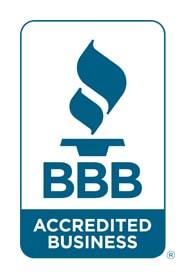HVAC Maintenance & Indoor Air Quality ImprovementTampa, FL, North Port, FL, Town 'n' Country, FL, Port Charlotte, FL, Punta Gorda, FL & Englewood, FL
Indoor air quality (IAQ) has become an increasingly significant topic as we spend more time indoors, whether at home or in the workplace. People tend to spend approximately 90% of their time in different indoor environments.1 Poor IAQ can lead to a range of health issues, from minor irritations to severe respiratory conditions. Ensuring the air we breathe indoors is clean and healthy requires a multifaceted approach, with routine HVAC maintenance playing a pivotal role.
Understanding Indoor Air Quality
Indoor air quality refers to the condition of the air within and around buildings, particularly as it relates to the health and comfort of the occupants. Various factors influence IAQ, including pollutants such as dust, pollen, mold spores, and chemical emissions from household products and building materials.
According to a comprehensive review published on the National Center for Biotechnology Information (NCBI) website, indoor air pollution has been linked to several adverse health effects. These include respiratory diseases like asthma and bronchitis, cardiovascular diseases, and even neurological effects in severe cases.1
The Impact of Poor IAQ
Poor indoor air quality can have immediate and long-term effects on health. Short-term effects often resemble allergy symptoms—sneezing, coughing, eye irritation, and fatigue. Long-term exposure to poor IAQ can lead to more serious conditions, including chronic respiratory diseases, heart disease, and lung cancer.
Children, the elderly, and individuals with preexisting health conditions are particularly vulnerable to the effects of poor IAQ. Given the significant amount of time people spend indoors, improving IAQ is crucial for overall public health.
The Role of HVAC Systems in IAQ
HVAC systems are essential for maintaining comfortable indoor environments, but they also play a crucial role in regulating IAQ. These systems filter out pollutants and provide ventilation, ensuring that fresh air circulates throughout the building.
However, without regular maintenance, HVAC systems can become sources of pollution themselves. Dirty filters, ducts, and coils can harbor mold, bacteria, and other contaminants, which can then be distributed throughout the indoor environment.
Practical Steps for Routine HVAC Maintenance
To maintain optimal indoor air quality, it is essential to follow a regular HVAC maintenance schedule. Here are some practical steps:
- Filter Replacement: Check and replace filters every 1-3 months, depending on the type of filter and usage.
- Duct Cleaning: Have the ducts professionally cleaned every 3-5 years to remove dust and debris.
- Coil Cleaning: Clean the evaporator and condenser coils annually to prevent the build-up of dirt and mold.
- Monitor Humidity Levels: Use a hygrometer to monitor indoor humidity levels and ensure they remain between 30-50%. Adjust the HVAC settings or use dehumidifiers if necessary.
- Professional Inspections: Schedule annual inspections by HVAC professionals like Total Air Solutions to identify and address any potential issues.
Maintaining good indoor air quality is essential for health and well-being. Given the critical role HVAC systems play in regulating IAQ, routine maintenance is not just a matter of efficiency but a crucial public health measure. By ensuring that HVAC systems are regularly inspected, cleaned, and maintained, we can significantly improve the air we breathe indoors, leading to healthier, more comfortable living environments.
Reference:
1- https://www.ncbi.nlm.nih.gov/pmc/articles/PMC8004912/
Indoor Air Quality Improvement ∴ HVAC Maintenance ∴ Port Charlotte, FL ∴ Tampa, FL ∴ North Port, FL









